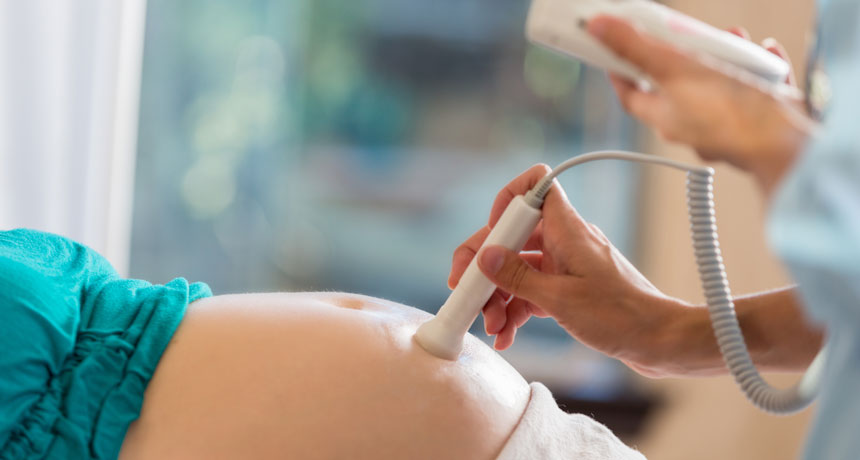A new study eases fears of a link between autism and prenatal ultrasounds

Ultrasounds during pregnancy can be lots of fun, offering peeks at the baby-to-be. But ultrasounds aren’t just a way to get Facebook fodder. They are medical procedures that involve sound waves, technology that could, in theory, affect a growing fetus.
With that concern in mind, some researchers have wondered if the rising rates of autism diagnoses could have anything to do with the increasing number of ultrasound scans that women receive during pregnancy.
The answer is no, suggests a study published online February 12 in JAMA Pediatrics. On average, children with autism were exposed to fewer ultrasounds during pregnancy, scientists found. The results should be “very reassuring” to parents, says study coauthor Jodi Abbott, a maternal fetal medicine specialist at Boston Medical Center and Boston University School of Medicine.
To back up: Autism rates have risen sharply over the last several decades (though are possibly plateauing). Against this backdrop, researchers are searching for the causes of autism — and there are probably many. Autism is known to run in families, and scientists have found some of the particular genetic hot spots that may contribute. Other factors, such as older parents and maternal obesity, can also increase the risk of autism.
Scientists suspect that in many cases, autism is caused by many factors, all working together. Could prenatal ultrasounds, which have become more routine and more powerful, be one of those factors? These scans use sound waves that penetrate mothers’ bodies, and then collect the waves that bounce back, forming a picture of fetal tissues. During this process, the waves may be able to heat up the tissue they travel through.
Work on animals has suggested that ultrasounds can in fact interfere with fetal brain development, derailing the normal movements of cells that populate the brain. Mice exposed to 30 or more minutes of ultrasound in utero had abnormal brain development, for instance. But it’s not at all clear whether a similar thing might happen in humans, and if so, whether such effects might contribute to autism.
The new study compared ultrasound exposure among three groups: 107 children diagnosed with autism spectrum disorder, 104 children diagnosed with a developmental delay, and 209 typically developing children. On average, the children with autism were exposed to 5.9 ultrasound scans over the course of pregnancy. Children with developmental delays were exposed to 6.1 scans, and typically developing children were exposed to 6.3 scans, the researchers found. (For all groups, these numbers are way above the one to two scans per low-risk pregnancy recommended by the American College of Obstetricians and Gynecologists.)
For all three groups, the duration of the scans was similar. So was the thermal index, an indication of how much warming might have happened. “In almost every parameter we looked at, ultrasound seemed perfectly safe,” says study coauthor N. Paul Rosman, a pediatric neurologist at Boston Medical Center and Boston University School of Medicine.
One measure was different, the researchers found: During the first trimester, mothers who had children with autism had slightly deeper ultrasounds than women who had typically developing children and children with developmental delays. Ultrasound depth measures the distance from the transducer paddle that emits the waves to the spot that’s being imaged. The measure “has a lot to do with the size of the mother and the distance between her skin, where the ultrasound transducer is, and where the baby is,” Abbott says.
Lots of questions remain about whether — and how — ultrasound depth, or other aspects of the technology, might affect fetuses. “The study certainly wasn’t perfect,” Rosman says. It combed back through medical records of women instead of following women from the beginning. And it didn’t control for certain traits that may influence autism, such as smoking.
The results suggest that on their own, ultrasounds don’t cause autism spectrum disorder, says Sara Jane Webb of Seattle Children’s Research Institute and the University of Washington, who cowrote a JAMA Pediatrics companion piece. “At this time, there is no evidence that ultrasound is a primary contributor to poor developmental outcomes when delivered within medical guidelines,” she says.
While there’s more science to sort out here, the news is reassuring for women who might be worried about getting scanned. Women should follow their doctors’ guidance on ultrasounds, Rosman says. “We don’t think there’s anything in this study to recommend otherwise.”